#study mbbs in india
Text
Navigating the Path to MBBS in India: A Comprehensive Guide
India, with its differing populace and quickly progressing healthcare framework, offers a vigorous stage for medical instruction. Seeking an MBBS (Bachelor of Medicine, Bachelor of Surgery) in India may be a prestigious endeavor that pulls in thousands of hopefuls each year. This article digs into the intricacies of getting an MBBS degree in India, investigating the admission process, curriculum, key teaching, challenges, and future prospects.
Admission Process
The journey to an MBBS degree in India starts with a thorough and competitive admission process. The National Qualification cum Entrance Test (NEET) is the portal for aspiring medical students. Conducted yearly by the National Testing Agency (NTA), NEET may be a single entrance examination for admission to MBBS courses in medical colleges over India.
NEET Examination
NEET assesses candidates on their knowledge of Physics, Chemistry, and Biology (Botany and Zoology). The exam comprises 180 multiple-choice questions, with a total length of three hours. The competition is fierce, as lakhs of students compete for a constrained number of seats.
Eligibility Criteria
To be eligible for NEET, candidates must fulfill the following criteria:
Age: Minimum age of 17 years as of December 31 of the year of affirmation. The upper age limit is 25 years for general category candidates and 30 years for reserved categories.
Educational Qualification: Candidates must have completed their 10+2 education with Physics, Chemistry, Biology/Biotechnology, and English as center subjects. They should have secured at least 50% marks in these subjects (40% for reserved categories).
Counseling and Seat Allocation
Post-NEET, the Medical Counseling Committee (MCC) and respective state authorities conduct counseling sessions for situate allocation. The All India Quota (AIQ) counseling is managed by MCC for 15% of the total seats in government medical colleges, while the remaining 85% seats are filled through state counseling.
Curriculum and Training
The MBBS program in India ranges five and a half years, counting a one-year required internship. The curriculum is planned to confer comprehensive medical education, combining theoretical knowledge with down to earth abilities.
Pre-Clinical Phase
The first year focuses on pre-clinical subjects:
Anatomy: Study of the structure of the human body.
Physiology: Understanding the typical functions of the human body.
Natural chemistry: Chemical forms inside and related to living beings.
Para-Clinical Stage
The moment year presents para-clinical subjects:
Pathology: Study of illnesses and their impacts on the body.
Microbiology: Study of microorganisms and their role in diseases.
Pharmacology: Study of drugs and their interactions with the human body.
Forensic Medicine: Application of medical knowledge to legal issues.
Clinical Stage
From the third year onwards, students dig into clinical subjects and pick up hands-on experience:
Common Medicine: Diagnosis and treatment of common maladies.
Surgery: Principles and practice of surgical strategies.
Pediatrics: Medical care for infants, children, and teenagers.
Obstetrics and Gynecology: Healthcare related to childbirth and female reproductive frameworks.
Orthopedics: Diagnosis and treatment of musculoskeletal system clutters.
Ophthalmology: Study and treatment of eye clutters.
Otorhinolaryngology (ENT): Study of ear, nose, and throat conditions.
Internship and Practical Training
The final year is committed to an internship, where students work in different hospital offices, including crisis, surgery, pediatrics, and community medication. This period is pivotal for viable preparation, permitting understudies to apply theoretical knowledge to real-world medical scenarios beneath the supervision of experienced doctors.
Key Medical Institutions
India is home to a few famous medical teachers that offer MBBS in India. A few of the most prestigious ones include:
All India Organized of Medical Sciences (AIIMS)
AIIMS, with its essential campus in New Delhi and branches over different states, is considered the apex of medical education in India. It offers world-class offices, experienced faculty, and cutting-edge research openings.
Christian Medical College (CMC), Vellore
CMC Vellore is known for its exceptional clinical training and community-oriented approach to healthcare. It has consistently ranked among the best medical colleges in India.
Armed Forces Medical College (AFMC), Pune
AFMC Pune combines medical education with military training, preparing students for benefit in the Indian Armed Forces. It is one of the most prestigious medical colleges in the nation.
Maulana Azad Medical College (MAMC), Modern Delhi
MAMC, affiliated with the University of Delhi, is renowned for its academic excellence and clinical exposure. It offers a diverse range of specializations and research opportunities.
Challenges and Opportunities
While pursuing an MBBS in India is a dream for many, it comes with its own set of challenges and opportunities.
Challenges
Tall Competition: The sheer number of aspirants makes the admission preparation greatly competitive.
Seriously Curriculum: The MBBS curriculum is requesting, requiring commitment and difficult work.
Push and Burnout: The thorough preparation and long hours can lead to push and burnout among students.
Foundation Issues: A few government medical colleges confront foundation and asset constraints, affecting the quality of instruction.
Openings
Differing Clinical Presentation: India's tremendous and different quiet populace gives broad clinical introduction, planning students for a variety of medical conditions.
Inquire about Openings: Beat medical colleges offer plentiful investigatory openings, contributing to medical advancements.
Worldwide Acknowledgement: An MBBS degree from a presumed Indian institution is recognized universally, opening entryways for advancements and career openings abroad.
Contribution to Society: A career in medication permits people to create critical contributions to society by moving forward healthcare and sparing lives.
Future Prospects
The future prospects for MBBS graduates in India are promising, with various career paths available:
Postgraduate Specialization
Many MBBS graduates pursue postgraduate specialization through entrance exams like NEET-PG, AIIMS-PG, or JIPMER-PG. Specializations incorporate fields like Cardiology, Neurology, Oncology, and many others, giving deeper information and skill in particular ranges of medicine.
Clinical Hone
Graduates can begin their clinical home by joining healing centers, clinics, or setting up their own practice. The request for qualified specialists is ever-present, guaranteeing a steady and fulfilling career.
Research and Academics
Those slanted towards academics and research can connect medical colleges as staff individuals or analysts. This way permits them to contribute to medical science and prepare future doctors.
Administrative Parts
Medical experts can moreover move into administrative parts in hospitals, healthcare organizations, or government bodies, contributing to healthcare arrangement and management.
Worldwide Openings
With extra qualifications and exams, Indian specialists can practice abroad, especially in nations just like the USA, UK, Canada, and Australia, where there's a request for talented medical professionals.
Conclusion
Pursuing an MBBS in India may be a journey of dedication, difficult work, and diligence. In spite of the challenges, the rewards are immense, both in terms of individual satisfaction and proficient fulfillment. India's medical education system, with its mix of theoretical knowledge and down to earth preparation, prepares students with the skills and ability required to excel within the medical field. As healthcare proceeds to advance, MBBS graduates will play a vital part in forming the future of medication and making strides in the wellbeing and well-being of society.
0 notes
Text
Kalka Dental College: Pioneering Excellence in Dental Education
Kalka Dental College & Hospital (KDCH) could be a chief institution found in Meerut, Uttar Pradesh, India. Established with the vision of delivering high-quality dental education and exceptional healthcare services, KDCH has risen as a leading title within the field of dentistry. The institution is affiliated with the prestigious Chaudhary Charan Singh College, Meerut, and is recognized by the Dental Committee of India (DCI). Over a long time, KDCH has picked up a notoriety for its state-of-the-art offices, experienced workforce, and a holistic approach to dental instruction and patient care.

Verifiable Foundation
Kalka Dental College & Clinic was established with the point of bridging the hole between hypothetical knowledge and down to earth application in dentistry. Since its beginning, the institution has been committed to cultivating a learning environment that empowers advancement, inquire about, and proficient greatness. The originators imagined a college that not as it confers scholarly information but moreover ingrains moral values and a sense of duty among understudies.
Foundation and Facilities
KDCH brags a present day foundation outlined to meet the requirements of both understudies and patients. The college campus is spread over a tremendous range, giving plentiful space for scholarly buildings, clinical offices, research facilities, libraries, and recreational offices.
Scholarly Offices
Classrooms and Lecture Halls: Equipped with audio-visual help and modern teaching devices, the classrooms and address lobbies encourage an interactive learning experience.
Laboratories: KDCH has well-equipped laboratories for various specialisations in dentistry, counting prosthodontics, orthodontics, periodontics, and verbal surgery. These labs are outlined to supply hands-on training to students under the supervision of experienced staff.
Library: The college library could be a treasure trove of information, lodging an endless collection of textbooks, reference books, diaries, and digital assets. It gives a conducive environment for pondering and investigating.
Simulation Center: To enhance the viable skills of students, Kalka Dental College & Hospital Incorporates a simulation centre where students can hone procedures on dental mannequins before treating genuine patients.
Clinical Facilities
Dental Clinics: The clinic wing of KDCH incorporates different dental clinics prepared with the most recent dental chairs, rebellious, and symptomatic instruments. These clinics cater to different dental specialisations, giving comprehensive dental care to patients.
Diagnostic Imaging: Advanced diagnostic imaging offices, including digital radiography and cone-beam computed tomography (CBCT), enable exact diagnosis and treatment planning.
Sterilisation Units: Following strict sterilisation protocols, KDCH ensures a sterile and secure environment for both patients and healthcare providers.
Patient Care Administrations: The hospital offers a run of dental services, including preventive care, helpful dentistry, verbal surgery, orthodontics, endodontics, and periodontics. A devoted group of dental experts and back staff work tirelessly to deliver high-quality patient care.
Scholarly Programs
KDCH offers a variety of scholastic programs designed to cater to the different interface and career objectives of students. These programs are structured to supply a balanced blend of theoretical knowledge, practical aptitudes, and investigate opportunities.
Undergraduate Program
Bachelor of Dental Surgery (BDS): The flagship undergraduate program at KDCH is the BDS course, which ranges over five years, counting one year of compulsory internship. The curriculum covers all aspects of dental science, from basic medical sciences to clinical dentistry.
Postgraduate Programs
Master of Dental Surgery (MDS): Kalka Dental College & Hospital offers MDS programs in different specialisations, including:
Prosthodontics
Orthodontics
Periodontics
Oral and Maxillofacial Surgery
Conservative Dentistry and Endodontics
Paediatric Dentistry
Each MDS program is designed to provide advanced training within the individual strength, with a solid emphasis on clinical home and research.
Proceeding Instruction
KDCH conducts continuing education programs and workshops for practising dentists to assist them remain updated with the latest advancements in dental science and technology.
Research and Advancement
Investigate may be a foundation of the scholarly logic at KDCH. The institution encourages both staff and students to inquire about exercises that contribute to the progression of dental science. KDCH has built up research centres and collaborations with driving dental research institutions to facilitate cutting-edge inquiries.
Research Areas
Key areas of research at KDCH include:
Dental Materials: Investigating new materials and their applications in helpful dentistry.
Verbal Pathology: Considering the pathogenesis of verbal infections and creating symptomatic strategies.
Implantology: Progressing methods and materials utilised in dental inserts.
Open Wellbeing Dentistry: Inquiring about the study of disease transmission of dental illnesses and creating community-based anticipation programs.
Workforce
The workforce at KDCH comprises experienced and profoundly qualified experts dedicated to giving quality instruction and mentorship. The instructing staff incorporates teachers, related teachers, and assistant teachers, many of whom are recognized specialists in their respective areas. The workforce individuals are effectively included in research, clinical hone, and proceeding instruction, guaranteeing that they bring the most recent information and aptitudes to the classroom.
Student Life
KDCH accepts in the all encompassing improvement of understudies and offers a run of extracurricular activities and offices to back this goal.
Student Organizations and Clubs
Various student organisations and clubs at KDCH give openings for understudies to lock in in extracurricular exercises, create leadership aptitudes, and foster camaraderie. These include:
Social Club: Organises social events, celebrations, and ability appears.
Sports Club: Promotes physical fitness and organises sports occasions and tournaments.
Scholarly Club: Empowers literary exercises such as talks about, tests, and composing competitions.
Community Outreach
KDCH is effectively involved in community outreach programs aimed at advancing verbal health awareness and giving dental care to underserved populations. These programs incorporate dental camps, school wellbeing programs, and open wellbeing activities.
Accomplishments and Accolades
Over a long time, KDCH has gotten various awards and acknowledgments for its commitments to dental instruction and healthcare. The institution has been reliably positioned among the best dental colleges in India and has been lauded for its scholarly fabulousness, research yield, and persistent care administrations.
Future Prospects
KDCH is committed to ceaseless enhancement and innovation in dental education and healthcare. Future plans for the institution include expanding research offices, presenting modern academic programs, and enhancing community outreach efforts. KDCH aims to stay at the forefront of dental education and healthcare, creating skilled experts who can make significant contributions to the field of dentistry.
Conclusion
Kalka Dental College & Clinic stands as a signal of fabulousness in dental instruction and patient care. With its state-of-the-art foundation, experienced staff, and commitment to inquire about and innovation, Kalka Dental College & Hospital gives a perfect environment for trying dental specialists to learn, develop, and excel. The institution's dedication to all encompassing education and community benefit guarantees that it proceeds to form a positive effect on society, forming long-term dental healthcare in India and the past.
#MBBS in India#MBBS in UP#Study MBBS#Education#Study MBBS in India#Study MBBS in UP#MBBS admission in India
0 notes
Text
Vyas Medical College, Rajasthan: A Premier Institution for Medical Education
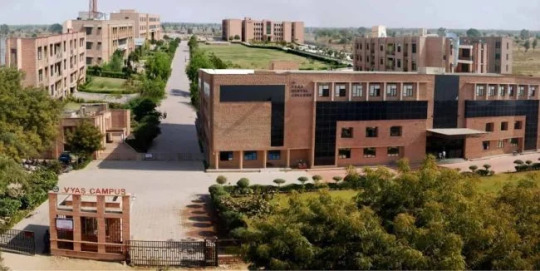
Vyas Medical College, located in the historic state of Rajasthan, is one of the premier institutions dedicated to providing top-notch medical education. Known for its state-of-the-art infrastructure, experienced faculty, and comprehensive curriculum, Vyas Medical College offers a conducive learning environment for aspiring medical professionals.
Why Choose Vyas Medical College?
There are several compelling reasons to choose Vyas Medical College for your medical education:
High-Quality Education: The college is committed to delivering high standards of medical education that align with global best practices.
Experienced Faculty: Students benefit from the guidance of highly qualified and experienced faculty members who are experts in their respective fields.
Modern Infrastructure: The college boasts advanced laboratories, well-equipped classrooms, and extensive clinical training facilities.
Holistic Development: Emphasis on both academic excellence and extracurricular activities ensures the holistic development of students.
Academic Programs
Vyas Medical College offers a range of undergraduate and postgraduate programs in various medical disciplines. The flagship program, MBBS (Bachelor of Medicine and Bachelor of Surgery), is designed to equip students with the necessary knowledge and skills to excel in the medical field.
MBBS Program
Duration: The MBBS program spans five and a half years, including a one-year mandatory internship.
Curriculum: The curriculum is designed to cover all essential aspects of medical education, from basic sciences to clinical practices. It includes both theoretical lectures and practical sessions.
Clinical Training: Students gain hands-on experience through rotations in various departments such as General Medicine, Surgery, Pediatrics, Obstetrics and Gynecology, and more.
Facilities
Vyas Medical College provides state-of-the-art facilities to ensure a comprehensive learning experience:
Advanced Laboratories: Equipped with the latest technology, these labs provide students with practical experience in various medical fields.
Library: The college library houses an extensive collection of medical books, journals, and research papers, providing students with ample resources for study and research.
Hospital: The attached teaching hospital offers students real-world clinical exposure, essential for developing practical skills.
Admission Process
The admission process for MBBS at Vyas Medical College typically involves the following steps:
Eligibility: Candidates must have completed their higher secondary education (10+2) with Physics, Chemistry, and Biology, and must have qualified the NEET (National Eligibility cum Entrance Test).
Application: Interested candidates need to fill out the application form available on the college's official website and submit the required documents.
Counseling: Shortlisted candidates are called for a counseling session based on their NEET scores and academic performance.
Final Selection: Final admission is granted after the verification of documents and payment of the admission fees.
Extracurricular Activities
Vyas Medical College encourages students to engage in various extracurricular activities to ensure their overall development. The college organizes cultural events, sports competitions, and medical camps, providing students with opportunities to showcase their talents and serve the community.
Conclusion
Vyas Medical College in Rajasthan stands out as a leading institution for medical education, offering a blend of quality education, modern facilities, and experienced faculty. Whether you aspire to become a doctor, surgeon, or researcher, Vyas Medical College provides the ideal platform to achieve your medical career goals. With its commitment to academic excellence and holistic development, the college ensures that its graduates are well-prepared to meet the challenges of the healthcare industry.
#Vyas Medical College#Medical Education in Rajasthan#Top Medical College in Rajasthan#MBBS in Rajasthan#Medical College Facilities#Study MBBS in India#MBBS Admission
0 notes
Text
Seeking after MBBS in India: A Comprehensive Guide

India has long been a favoured goal for aspiring specialists due to its strong medical instruction framework, high-quality teaching, and reasonable expenses. Pursuing an MBBS in India not as it were gives students with a strong establishment in medical science but moreover uncovered them to assorted clinical encounters. This article explores the key angles of studying MBBS in India, counting MBBS expenses, the most excellent medical colleges, admission processes, and more.
Why Study MBBS in India?
India is domestic to a few of the world's best medical colleges, known for their thorough scholarly guidelines and broad clinical exposure. Medical colleges in India are recognized by worldwide medical chambers, guaranteeing that graduates are qualified to practise pharmaceuticals around the world. Furthermore, the differing qualities in persistent cases and healthcare settings gives students with priceless hands-on involvement.
MBBS Fees in India
One of the foremost alluring highlights of studying MBBS in India is the reasonableness. The MBBS expenses in India shift broadly depending on the sort of institution, government, private, or deemed colleges. Government therapeutic colleges tend to have altogether lower expenses, extending from INR 10,000 to INR 1,00,000 per year. In contrast, private medical colleges may charge between INR 10,00,000 to INR 25,00,000 per year. Grants and budgetary help alternatives are accessible for meriting students, making medical education open to a broader group of onlookers.
Best Medical Colleges in India
India brags various prestigious medical colleges eminent for their academic greatness and state-of-the-art offices. Here are a few of the leading medical colleges in India:
All India Institute of Medical Sciences (AIIMS), New Delhi: AIIMS reliably positions as the top medical institution in India, advertising world-class education and research opportunities.
Christian Medical College (CMC), Vellore: Known for its great clinical preparation and inquiries, CMC is a favoured choice for many medical applicants.
Equipped Powers Medical College (AFMC), Pune: AFMC offers top-notch medical education with a centre on preparing military specialists.
Jawaharlal Institute of Postgraduate Medical Education and Research (JIPMER), Puducherry: JIPMER is famous for its cutting-edge research and comprehensive restorative programs.
Maulana Azad Medical College (MAMC), New Delhi: MAMC is one of the most seasoned and most prestigious medical colleges in India, known for its academic meticulousness and clinical preparation.
Medical Colleges for Indian Students
India has an endless organisation of medical colleges catering particularly to Indian students. These schools offer educational modules that adjust with national healthcare needs and guidelines. A few of the outstanding medical colleges for Indian students include:
Kasturba Medical College (KMC), Manipal
St. Johns Medical College, Bangalore
Give Therapeutic College, Mumbai
Ruler Georges Medical College (KGMU), Lucknow
Woman Hardinge Medical College, Unused Delhi
MBBS Admission in India
The admission preparation for MBBS in India is competitive and includes a few steps. The essential entrance exam for MBBS admission in India is the National Eligibility cum Entrance Test (NEET). Here's a step-by-step guide to the admission process:
Eligibility Criteria: Candidates must have completed their higher auxiliary education (10+2) with Material science, Chemistry, and Science as primary subjects. They must moreover meet the age criteria, typically between 17 to 25 years.
NEET Examination: Aspiring students must show up for NEET, which could be a across the nation exam conducted by the National Testing Organization (NTA). NEET evaluates candidates' knowledge in Material science, Chemistry, and Science.
Counselling and Situate Allocation: Based on NEET scores, students take an interest in the counselling process, where they can choose their favoured medical colleges. Seats are distributed based on justify and reservation policies.
Admission Formalities: Once a situation is designated, students are required to total the admission conventions, counting archive verification, charge instalment, and medical examination.
Clinical Exposure and Internships
Medical education in India places a solid accentuation on clinical exposure. From the third year onwards, students lock in in commonsense preparing in hospitals, where they are associated with patients and learn to analyse and treat different medical conditions. The ultimate year incorporates a obligatory internship, giving hands-on involvement in different medical specialties beneath the supervision of experienced specialists.
Research and Innovation
Many Indian medical colleges energise research and development. Teach like AIIMS, JIPMER, and CMC have committed research wings where students can take an interest in groundbreaking research ventures. This exposure not as it were upgrades their academic profile but too plans them for future careers in medical research and academia.
Community Engagement and Rural Healthcare
Indian medical colleges regularly join community benefits into their educational programs. Students take part in country wellbeing camps and outreach programs, giving healthcare administrations to underserved populaces. This encounter ingrains a sense of social responsibility and prepares students to address healthcare challenges in assorted settings.
Conclusion
Pursuing an MBBS in India may be a fulfilling journey that combines thorough academic preparation, broad clinical exposure, and openings for research and community engagement. With reasonable expenses, world-class education, and a diverse learning environment, India proceeds to be a favoured goal for medical education. Aspiring specialists who choose to think about MBBS in India are well-equipped to set out on a fruitful and satisfying medical career, making a noteworthy effect on healthcare both broadly and all inclusive.
0 notes
Text
The Essence of Healing: Exploring the Core Values of MBBS Education
Medical education, especially pursuing an MBBS degree, is a transformative journey that goes beyond acquiring clinical knowledge and technical skills. It encompasses a profound understanding of the core values that define the essence of healing. In this article, we delve into the essential aspects of MBBS education in India, exploring its core values and the holistic approach to healthcare it fosters.
MBBS in India: A Diverse Landscape of Medical Education
India boasts a rich and diverse landscape of medical education institutions, offering a range of opportunities for aspiring medical professionals. Pursuing MBBS in India is not just about acquiring a degree; it's about immersing oneself in a culture of medical excellence, compassion, and service to humanity. Let's explore the core values that form the foundation of MBBS education in India:
Holistic Patient-Centered Care: At the heart of MBBS education in India is the principle of holistic patient-centered care. Medical students are trained to view patients as individuals with unique physical, emotional, and social needs. This approach emphasizes the importance of treating the whole person, not just the disease.
Ethical Practice: Ethics and integrity are fundamental pillars of MBBS education in India. Medical students are taught the importance of upholding ethical standards, respecting patient autonomy, and practicing medicine with honesty, empathy, and professionalism.
Cultural Sensitivity: India's diverse cultural landscape plays a significant role in shaping medical education. Students learn to navigate cultural differences, respect diverse beliefs and practices, and provide culturally sensitive care that promotes trust and collaboration between healthcare providers and patients.
Community Engagement: MBBS education in India emphasizes the importance of community engagement and public health initiatives. Students are encouraged to participate in outreach programs, health camps, and initiatives that address the healthcare needs of underserved populations, fostering a sense of social responsibility and advocacy.
Continuous Learning and Research: The field of medicine is constantly evolving, and MBBS education in India promotes a culture of continuous learning and research. Students are encouraged to stay updated with the latest medical advancements, engage in research projects, and contribute to the advancement of medical knowledge and practice.
The Essence of Healing: Core Values in Medical Education
Compassion and Empathy: Central to the essence of healing is compassion and empathy towards patients. Medical education instills in students the importance of understanding patients' emotions, fears, and concerns, and providing care with kindness, warmth, and empathy.
Professionalism and Integrity: The core values of professionalism and integrity guide medical students in their interactions with patients, colleagues, and the healthcare system. Upholding high ethical standards, maintaining confidentiality, and acting with honesty and integrity are paramount in the practice of medicine.
Collaborative Care: Healing is a collaborative effort that involves healthcare teams working together to deliver optimal patient outcomes. Medical education emphasizes the importance of interdisciplinary collaboration, effective communication, and teamwork to provide comprehensive and coordinated care.
Lifelong Learning: The journey of healing is a lifelong commitment to learning and self-improvement. Medical professionals continuously seek opportunities to expand their knowledge, refine their skills, and stay abreast of advancements in medical science and technology to deliver the best possible care to patients.
Patient Advocacy: Advocating for patients' rights, promoting health equity, and addressing social determinants of health are integral aspects of healing. Medical education empowers students to become advocates for their patients, championing for equitable access to healthcare and addressing systemic barriers to health and well-being.
In conclusion, the essence of healing in study mbbs in india extends beyond medical knowledge and technical proficiency. It encompasses a deep understanding of core values such as compassion, empathy, ethics, collaboration, and lifelong learning, shaping future medical professionals into compassionate healers who embody the art and science of medicine in its truest sense.
0 notes
Text
MBBS Admission in India| MBBS Admission in Abroad
We are here to help all the mbbs aspirants who are looking forward to taking mbbs admission in india 2022. Our counselors will help you to shortlist colleges according to your profile and will help you to secure a seat in one of the top mbbs colleges. If you want to take mbbs admission in india 2022 in a good college, contact us now. We have been serving in this industry for several years now and will be grateful to help you.
Contact - (+91) 7503-08-0808
(+91) 7503-08-0808
(011) 456-219-59
#MBBS Consultancy in india#study mbbs abroad#study mbbs in india#mbbs abroad consultants in delhi#mbbs abroad consultants in haryana#mbbs in abroad for indian students#mbbs admission in india#Medical Studies Abroad#mbbs institutes Abroad Consultants#Study Abroad Consultants in new delhi#mbbs abroad consultants#mbbs institute consultants in abroad#Top Study Abroad Consultants in Delhi#Best MBBS Abroad Consultant#mbbs abroad consultants in Punjab#mbbs admission in abroad#Top Study Abroad Consultants in india#mbbs abroad consultants in Rajasthan
1 note
·
View note
Photo

#M B Patil#Manoj Patil#Career Guidance in Pune#career counseling pune#post graduate commerce courses#Career Counseling Services in Pune#MBBS admission in Maharashtra#Admission in MBBS in Maharashtra#study MBBS in India#Study MBBS in Abroad
0 notes
Text

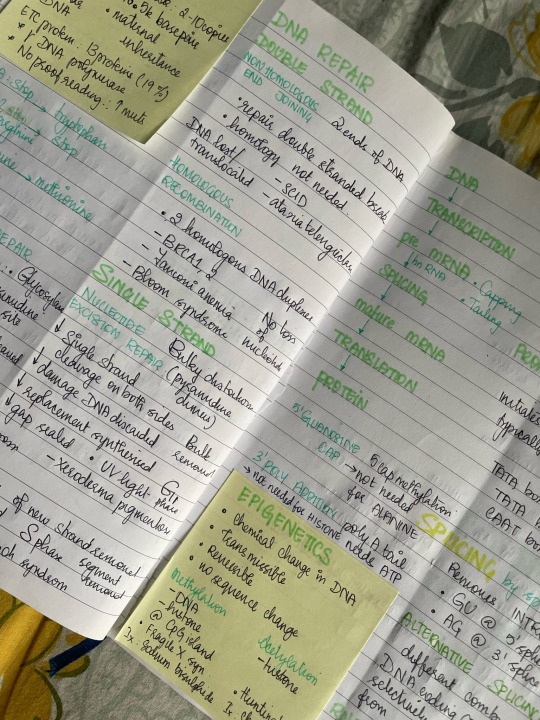
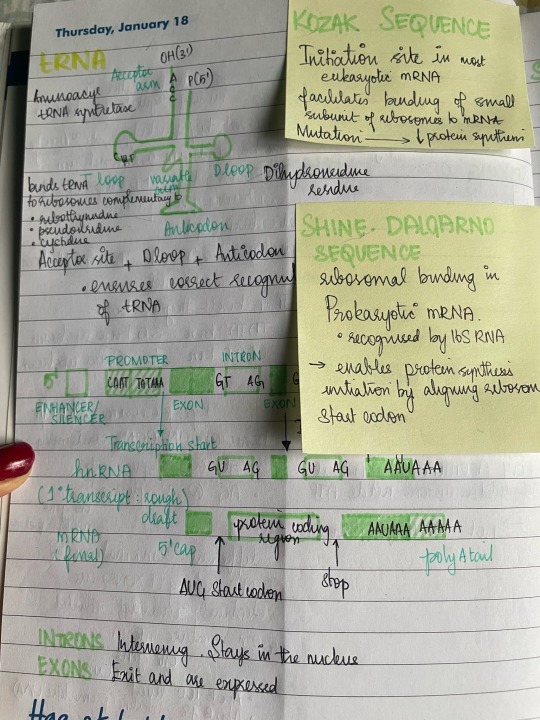

03.07.2023
Was travelling with family last week and fell a lil sick. But the weather was wonderful today and I was able to spend a few hours learning. Finally completed uworld block on genetics. Feels like a huge achievement honestly.
#phtooftheday#medstudlife#studyblr#studysthetics#neetpg#medstudynotes#neetpg2023#study mood#first aid#inicet#indian studyblr#desi doctor#desi studyblr#med blog#medblr#medblog#new medblr#studywithme#studyinspo#study notes#studyblr community#light academia#light academic aesthetic#hustle#mbbslife#mbbs in india#study inspiration#study aesthetic#study tumblr#studyspo
468 notes
·
View notes
Text
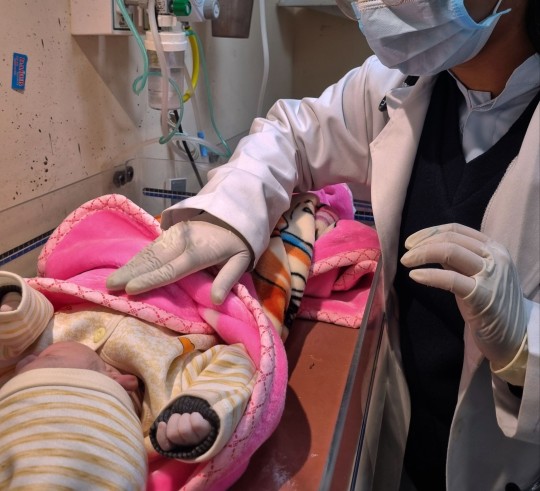

It's been a year since I uploaded and if life hasn't turned out to be way different than I imagined.
First year was ... Something. Although I scored well in my University examinations (600+/900) , somehow life still was a bitch .
I am in 2nd year now . Clinical postings have become my worst enemy except for when I get to see cute babies get delivered.
The paraclinical subjects are interesting yet harder to remember.
I have so much shit to unpack . I feel like everything I have been through can be a post of its own . I hope I can write atleast some of it .
Also one advice I want every medico who is reading this to know . Never trust anyone . Never . Ever.
You are on your own . And it will still be fine at the end of the day .
#medical college#study motivation#studyblr#adhd study tips#adhd studyblr#mbbs motivation#mbbsstudent#mbbslife#mbbs college#mbbs#mbbs in india#indian medical college#med school india#pre med motivation
8 notes
·
View notes
Text

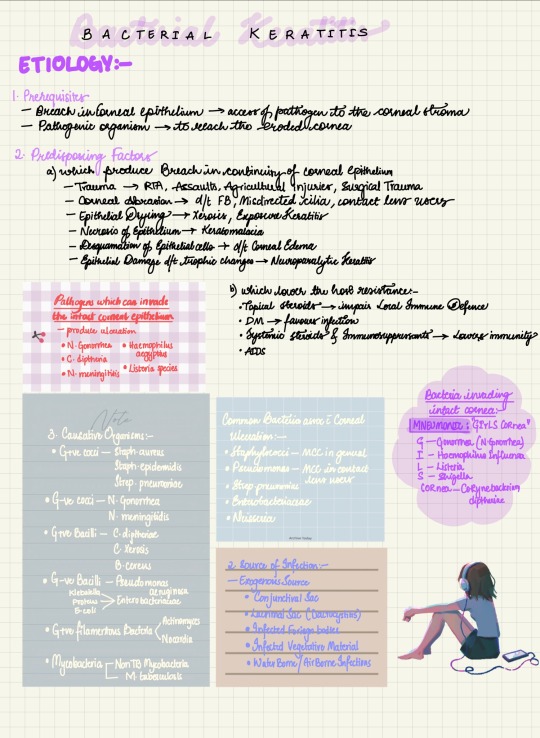
Day 4
27/5/2023
Made Purple notes on Keratitis!!!🟣
Discovering New things on GoodNotes app!!!✨✨
#studyblr#medstudyblr#med school#medstudentlife#medstudentblog#study hard#study notes#apple ipad#mbbs in india#mbbslife#studying#aesthetic notes#studyspiration#study aesthetic#studyinspo#studyspo#studygram#study blog#study space#digital notes#goodnotes#ipadpro#apple pencil#ophthalmology
22 notes
·
View notes
Text

Time to stick flash card and posters on the wall and gear up the game!
6 notes
·
View notes
Text
Exploring the Way to MBBS in India: A Comprehensive Guide
Setting out on the journey to be a specialist may be a dream shared by numerous people over India. The pursuit of a Bachelor of Medicine, Bachelor of Surgery (MBBS) degree isn't as it were a testament to one's energy for healing and benefit but also a significant academic and individual endeavour. In India, where healthcare plays a pivotal part in societal development, the interest of MBBS is both challenging and fulfilling. This comprehensive guide aims to light the way to MBBS in India, covering everything from eligibility criteria to entrance examinations and past.

Understanding MBBS:
MBBS is an undergraduate degree within the medical field, including the disciplines of medicine and surgery. It prepares understudies with the knowledge, abilities, and clinical experience vital to hone pharmaceutical as an authorised specialist. The term of the MBBS course in India is regularly five and a half years, counting a one-year internship period. Amid these a long time, understudies undergo thorough scholastic preparation combined with down to earth clinical exposure to get them ready for the complexities of medical practice.
Qualification Criteria:
The qualification criteria for seeking after MBBS in India change depending on the institution and the entrance examination. In any case, there are a few common requirements that trying medical students must meet:
Educational Capabilities:
Candidates must have completed 10+2 or identical examinations with Material science, Chemistry, Biology/Biotechnology, and English as obligatory subjects.
Least Marks: Most teachers require candidates to secure a least total of 50% within the qualifying examination (45% for saved categories).
Age Constrain: The least age restriction for candidates is ordinarily 17 a long time, and the greatest age limit varies among teachers.
Entrance Examinations:
Entrance examinations serve as the door to prestigious medical colleges in India. A few of the prominent entrance exams for MBBS include:
National Qualification cum Entrance Test (NEET):
NEET is conducted by the National Testing Office (NTA) and is the essential entrance exam for admission to MBBS courses in India. It comprises multiple-choice questions based on Physics, Chemistry, and Science.
All India Organized Medical Sciences (AIIMS) Entrance Exam:
AIIMS conducts its entrance examination for admission to its MBBS program. The exam surveys candidates' knowledge in Material science, Chemistry, Science, Common Knowledge, and Inclination & Consistent Thinking.
Jawaharlal Founded Postgraduate Medical Education and Investigate (JIPMER) Entrance Exam: JIPMER conducts its entrance exam for admission to MBBS courses advertised by the organisation.
Counselling and Seat Allotment:
After qualifying the entrance examinations, candidates experience counselling and prepare for situate assignments in medical colleges. Counselling may be conducted at the national, state, or organisation level, depending on the examination and the participating institutions. Amid counselling, candidates have the opportunity to choose their preferred colleges based on their rank and availability of seats.
MBBS Curriculum:
The MBBS curriculum in India is organised to supply understudies with a comprehensive understanding of restorative science and clinical hone. It ordinarily incorporates pre-clinical subjects such as Life structures, Physiology, and Biochemistry, taken after by para-clinical and clinical subjects like Pathology, Pharmacology, Medicine, Surgery, Obstetrics, and Gynecology. Also, students experience down to earth training through clinical postings and turns in various offices of healing centres.
Internship:
Upon completing the scholastic educational modules, MBBS students are required to undergo a obligatory one-year internship in a recognized healing centre. The internship gives hands-on clinical encounters beneath the supervision of experienced medical experts. Amid this period, assistants actively participate in understanding care, diagnostic procedures, and treatment protocols, in this manner bridging the gap between hypothetical knowledge and practical application.
Licensing Examination:
After effectively completing the internship, aspiring doctors are qualified to appear for the permitting examination conducted by the respective state medical boards or the National Medical Commission (NMC). The permitting examination evaluates candidates' clinical aptitudes, knowledge, and competency to hone medicine independently. Upon passing the examination, candidates are granted the permit to hone as enrolled medical professionals.
Career Prospects:
A degree in MBBS opens up differing career openings for medical experts in India. Graduates can seek after specialisation through postgraduate courses (MD/MS) in different medical specialties such as Common Medication, Pediatrics, Surgery, Obstetrics and Gynecology, Orthopedics, and more. Also, MBBS graduates can explore career paths in healthcare teaching, government hospitals, private clinics, investigate organisations, open health sectors, and academia.
Conclusion:
Pursuing MBBS in India may be a journey that requires dedication, perseverance, and a genuine commitment to the service of humankind. From clearing entrance examinations to undergoing thorough scholastic training and practical internships, aspiring doctors undergo a transformative instructive experience that plans them for the challenges and duties of medical practice. With the correct direction, assets, and determination, trying medical students can explore the way to MBBS and set out on a satisfying career devoted to recuperating and kindness.
0 notes
Text
Revealing Pathways: Embracing the MBBS Expedition in India

Beginning the pursuit of a Bachelor of Medicine, Bachelor of Surgery (MBBS) degree in India is a significant milestone for many aspiring doctors. With its rich history of medical education and diverse healthcare landscape, India offers a multitude of opportunities and challenges for students aiming to join the noble profession of medicine.
Here's a comprehensive guide to navigating the path to MBBS in India:
Entrance Examinations:
In India, admission to MBBS programs is primarily based on entrance examinations conducted at the national and state levels. The two most prominent national-level entrance exams for MBBS are the National Eligibility cum Entrance Test (NEET) and the All India Institute of Medical Sciences (AIIMS) Entrance Exam. State-level exams such as the Maharashtra Common Entrance Test (MH-CET), Karnataka Common Entrance Test (KCET), and others are also conducted by respective state authorities for admission to medical colleges within the state.
Eligibility Criteria:
To be eligible for MBBS admission in India, candidates must fulfill certain criteria, including completing 10+2 education with Physics, Chemistry, Biology/Biotechnology, and English as core subjects. Additionally, candidates must meet the minimum qualifying marks in the entrance examinations and satisfy any specific requirements set by individual medical colleges or state authorities.
Choice of Colleges:
India boasts a vast network of medical colleges, both government-run and private institutions, offering MBBS programs. Government medical colleges are known for their affordable tuition fees and robust infrastructure, while private colleges often offer greater flexibility but may have higher fees. Students should research and consider various factors such as academic reputation, faculty expertise, infrastructure, and clinical exposure before selecting a college.
Curriculum and Academic Rigor:
The MBBS curriculum in India is rigorous and comprehensive, encompassing both theoretical knowledge and practical training. Students undergo preclinical and paraclinical phases followed by clinical rotations in various specialties. The curriculum is designed to meet the standards set by the Medical Council of India (MCI) and emphasizes a holistic understanding of medical science, patient care, and ethical practice.
Clinical Exposure and Internship:
Clinical exposure is a vital component of MBBS education in India. Students undergo clinical postings and rotations in different departments of affiliated hospitals to gain hands-on experience in patient care, diagnosis, and treatment. Additionally, students are required to complete a compulsory rotating internship of one year after completing their academic coursework, wherein they work under the supervision of experienced healthcare professionals.
Challenges and Opportunities:
While pursuing an MBBS in India offers numerous opportunities for academic and professional growth, it also comes with its share of challenges. The competitive nature of entrance examinations, limited seats in government colleges, and rising tuition fees in private institutions pose challenges for aspiring medical students. However, India's diverse patient population, advanced healthcare infrastructure, and opportunities for research and specialization present ample opportunities for aspiring doctors.
Postgraduate Options and Career Prospects:
After completing MBBS, students can pursue postgraduate studies (MD/MS) in various specialties or opt for further specialization through super-specialty courses. Career opportunities for MBBS graduates in India are vast, ranging from clinical practice in hospitals and clinics to research, teaching, healthcare administration, and public health initiatives. Moreover, India's growing healthcare sector and increasing demand for skilled medical professionals offer promising career prospects for MBBS graduates.
Conclusion:
Pursuing an MBBS in India is a rewarding and fulfilling journey that requires dedication, perseverance, and a passion for serving humanity. By navigating the intricacies of entrance examinations, choosing the right college, and embracing the rigorous academic curriculum and clinical training, aspiring doctors can lay a strong foundation for a successful career in medicine. With India's vibrant healthcare ecosystem and myriad opportunities for growth and specialization, MBBS graduates can embark on a meaningful professional journey dedicated to healing, innovation, and compassionate patient care.
#MBBS in India#Study mbbs in India#MBBS fees in India#Best medical university in India#Mbbs admission in India
0 notes
Text
Unlocking the Door to Medical Excellence: Pursuing MBBS in India

Setting out on the journey to be a medical proficient could be a critical turning point, and selecting where to pursue your MBBS degree could be a significant choice. With a wealthy embroidered artwork of instructive teaching and a notoriety for creating world-class specialists, India stands tall as a guide of medical education excellence. Lets dive into the complexities of examining MBBS in India, covering basic viewpoints such as expenses, best medical colleges, colleges, and the admission process.
MBBS Fees in India
One of the essential contemplations for trying medical students is the taking a toll of education. In India, MBBS expenses shift across institutions and states. Generally, government medical colleges offer more reasonable alternatives compared to private teaching. Normally, the overall fees for the whole MBBS course in India run from INR 10 lakhs to INR 50 lakhs. In any case, this run can vary based on variables like framework, workforce, and area.
Best Medical Colleges in India
India gloats a few regarded medical colleges eminent for their academic excellence and inquire about commitments. Educators like All India Organized of Medical Sciences (AIIMS), Christian Medical College (CMC), Outfitted Powers Medical College (AFMC), and Maulana Azad Medical College (MAMC) are among the best choices for MBBS hopefuls. These colleges offer state-of-the-art offices, experienced staff, and comprehensive educational programs custom-made to deliver capable healthcare experts.
Medical Colleges for Indian Students
Separated from colleges, India houses various medical colleges catering to the different needs of Indian students. Whether it's in metropolitan cities or provincial ranges, there's plenty of choices accessible. A few outstanding colleges incorporate Give Restorative College in Mumbai, Ruler George's Medical College in Lucknow, and Bangalore Medical College and Research Organized. Each college has its special qualities, giving students a well-rounded educational experience.
MBBS Admission in India
Securing admission to a trustworthy medical institution in India requires fastidious arranging and arrangement. The admission preparation regularly includes clearing national or state-level entrance exams like NEET (National Qualification cum Entrance Test) for undergrad courses. Furthermore, a few colleges conduct their entrance exams or consider scores from other national exams like AIIMS MBBS and JIPMER. Candidates must fulfil eligibility criteria with respect to age, educational capabilities, and nationality to qualify for these exams.
Study MBBS in India
Examining MBBS in India offers unparalleled openings for students to drench themselves in an assorted and enhancing learning environment. From classroom addresses to hands-on clinical involvement, the educational module is planned to instil theoretical information and down to earth aptitudes fundamental for medical practice. In addition, India's multicultural society guarantees exposure to a wide run of restorative cases, cultivating an all encompassing approach to quiet care.
Challenges and Opportunities
Whereas pursuing MBBS in India presents various focal points, it's not without its challenges. Strong competition for restricted seats, especially in prestigious teaching, can be overwhelming for yearning specialists. Furthermore, exploring through regulatory forms and adjusting to the thorough scholarly requests requires versatility and diligence. In any case, overcoming these challenges prepares students with important aptitudes, planning them for the complexities of the medical calling.
Conclusion
Pursuing MBBS in India is a transformative journey marked by academic rigour, individual development, and the interest of greatness. With a strong foundation, eminent workforce, and a commitment to advancement, Indian medical education gives a perfect stage for aspiring specialists to realise their aspirations. By choosing to consider MBBS in India, students set out in a way that not as it were shapes their proficient careers but too empowers them to form meaningful contributions to the healthcare scene, both broadly and universally.
0 notes
Text
youtube
#mbbs abroad#mbbs abroad for indian students#mbbs in abroad#study mbbs abroad#mbbs abroad lowest fees#mbbs abroad best country#mbbs abroad 2024#mbbs abroad without neet 2024#mbbs abroad for indian students 2024#mbbs in abroad for indian students at low cost#mbbs in abroad fees#without neet mbbs admission in abroad 2024#mbbs outside India#mbbs in foreign countries for Indian students#mbbs abroad countries#mbbs abroad consultants#Youtube
3 notes
·
View notes